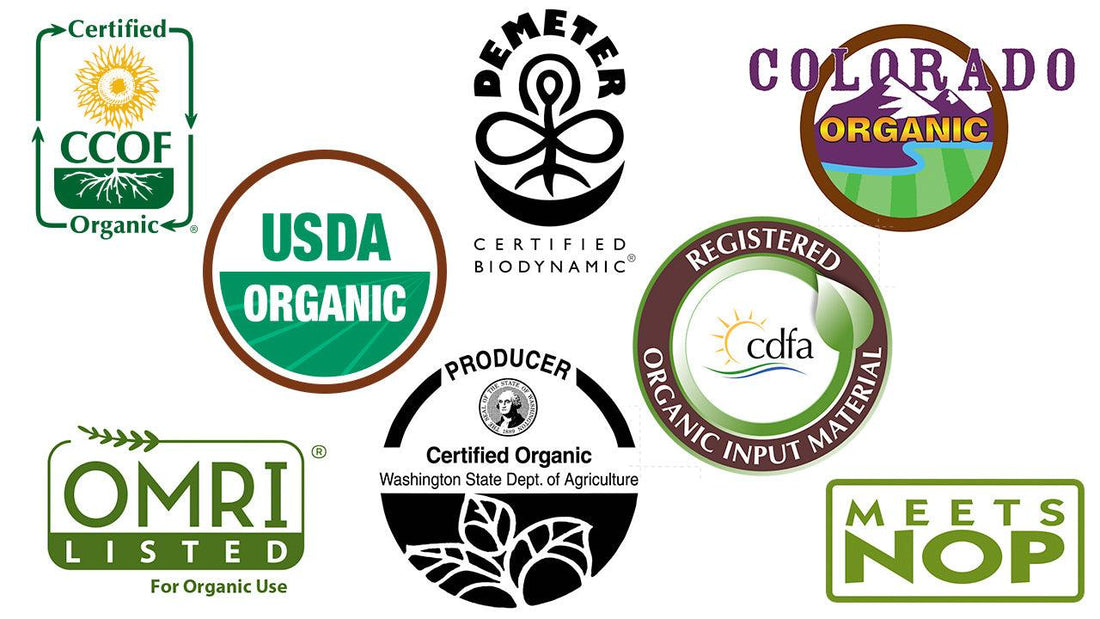There Are Many Organic Certifiers
In our new video, Tricia shops for organic produce at a farmers' market and talks about what "organic" means. With fruits and vegetables it means they were grown organically. But who sets the rules that determine if something is "organic"? Actually, several groups can do that. It's sort of an alphabet soup of organizations, but we'll lay it all out for you here.

The big kahuna is the USDA and its National Organic Program. In a nutshell, the USDA defines "organic" as "a labeling term that indicates that the food or other agricultural product has been produced through approved methods that integrate cultural, biological, and mechanical practices that foster cycling of resources, promote ecological balance, and conserve biodiversity. Synthetic fertilizers, sewage sludge, irradiation, and genetic engineering may not be used."
The USDA National Organic Program [NOP]
The USDA decides which farms and businesses meet organic standards by doing on-site, rubber-boots-on-the-ground inspections. The USDA National Organic Program can't carry out all the visits itself so it works with selected organizations that make certifying inspections in their own geographic areas.

An earlier certifier was CCOF in California. The California Certified Organic Farmers group was founded in 1973 by local organic growers. CCOF continues to advocate for organic farming, and is the leading official organic certifier for the USDA. Peaceful Valley Farm & Garden Supply has been certified by CCOF as an organic seed handler. Oregon Tilth is another regional group that acts as a certifier for the USDA NOP. Demeter certifies organic growers for the USDA -- with an interesting addition. Demeter also certifies for biodynamic farming.


